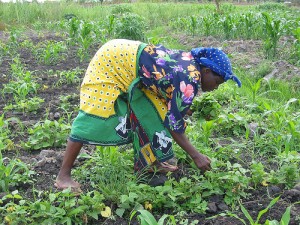James Reinl, United Nations Correspondent
NEW YORK // With the global economic downturn weakening Africa’s economies and beginning to erode a decade of growth, a senior UN official says there is a glimmer of hope: Gulf investment in African agriculture.
Rob Vos, the director of the development policy and analysis division of the UN’s Department for Economic and Social Affairs, said Gulf agribusiness “could be part of the solution” to the continent’s lagging growth, which is expected to decline from 5.1 per cent in 2008 to two per cent this year.
Mr Vos’s comments were the latest in a series of responses by the UN and its member agencies to the stepped-up drive by wealthier nations to ensure their food security in an increasingly unpredictable world food market by acquiring farmland overseas.
Last week, two UN agencies published a report highly critical of foreign land acquisitions in Africa, saying many countries on the continent were practically giving away the land and getting precious little in return beyond vague promises of jobs and investment.
“Most of the land deals documented by this study involved no or minimal land fees,” said the report, written by the Food and Agriculture Organisation (FAO) and the International Fund for Agricultural Development (IFAD), together with the International Institute for Environment and Development, a London-based think-tank.
Speaking on Thursday at the release of this year’s Economic Report on Africa, jointly produced by the UN and the African Union, Mr Vos said Gulf agribusiness investment could “help smallholder farmers increase their productivity” if handled correctly.
Overall, any foreign farmland acquisition must be part of a comprehensive development strategy that “strengthens rather than weakens” African economies, said Mr Vos, adding that a long-term focus on agricultural development was vital to the continent’s economic well-being.
Many welcome the interest of Gulf officials, entrepreneurs and sovereign wealth funds in acquiring farmland, especially on a continent where agriculture accounts for 25 to 35 per cent of gross domestic product and 60 per cent of employment.
Lila Hanitra Ratsifandrihamanana, the African Union’s Permanent Observer at the UN, praised Gulf agribusiness in Africa as an “innovative idea for generating and mobilising funds”. The idea would be explored at a forthcoming food security summit, the envoy said.
Between 2007 and the middle of last year, Gulf states and their government-backed businesses spent US$15 billion (Dh55bn) in sub-Saharan Africa alone, much of it in the drive for food security, according to the director general of the Ministry of Foreign Trade, Abdullah bin Ahmed al Saleh.
Al Qudra, the Abu Dhabi-based investment firm that plans to grow vegetables and grain in Croatia, Vietnam and Pakistan, ranks alongside Gulf agribusiness pioneers such as the Qatari livestock trader Mawashi and Bahrain’s public trading group, Trafco.
Amid the land rush, questions persist about the prudence of the property deals. In many cases, the terms are not disclosed, making it difficult to determine their benefit to host countries. In other cases, the terms appear to be vague and unenforceable, according to the FAO and IFAD.
In their report Land Grab or Development Opportunity?, the UN agencies warned that although the deals promise jobs and infrastructure, “these commitments tend to lack teeth”.
Last month, Olivier de Schutter, the UN special rapporteur on the right to food, called for a code of conduct to regulate the wealthy governments and private investors buying up vast tracts of rural Africa.
He claimed contracts were often brokered behind closed doors, with profits lining the pockets of officials rather than improving health care or education.
The food expert, who was appointed by the Geneva-based Human Rights Council, said peasant farmers often faced “forced evictions” from the land they were cultivating once their governments had sold it to a foreign buyer.













